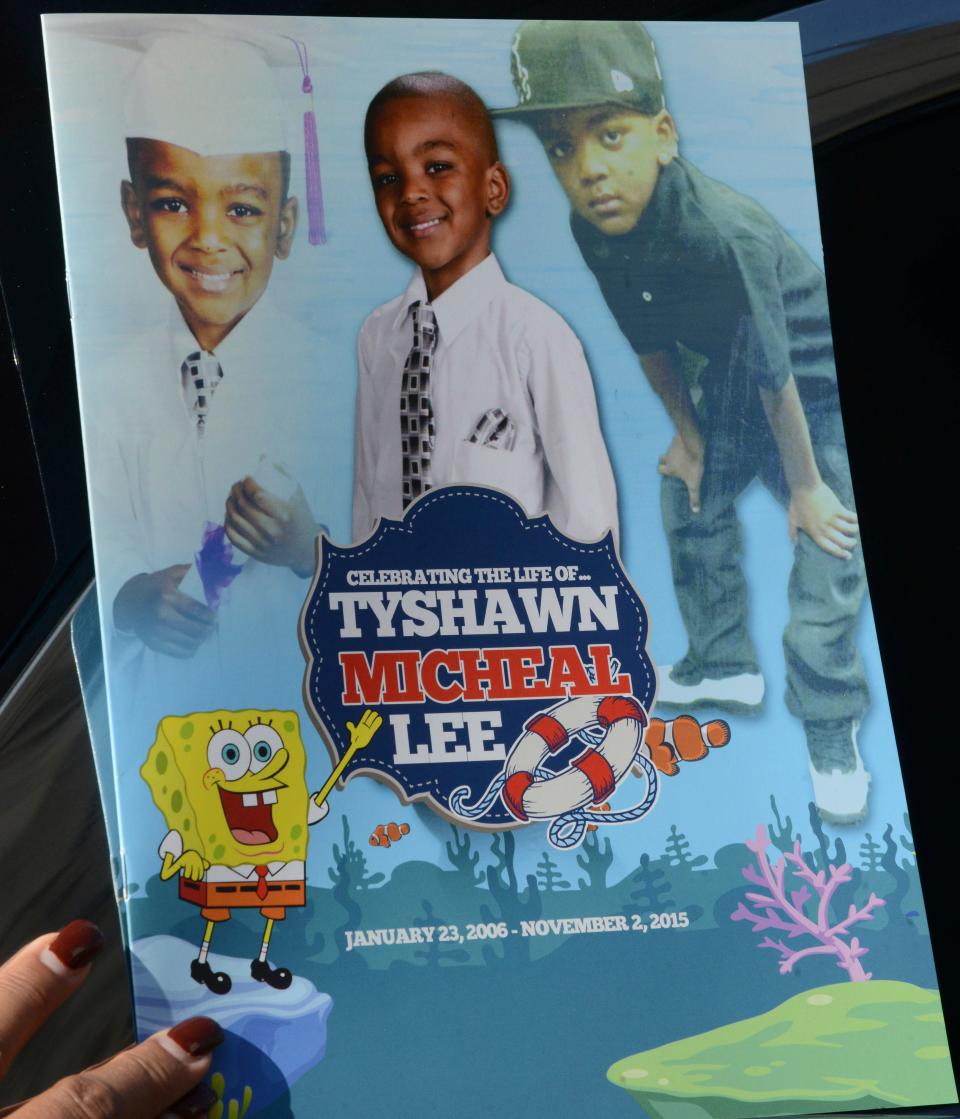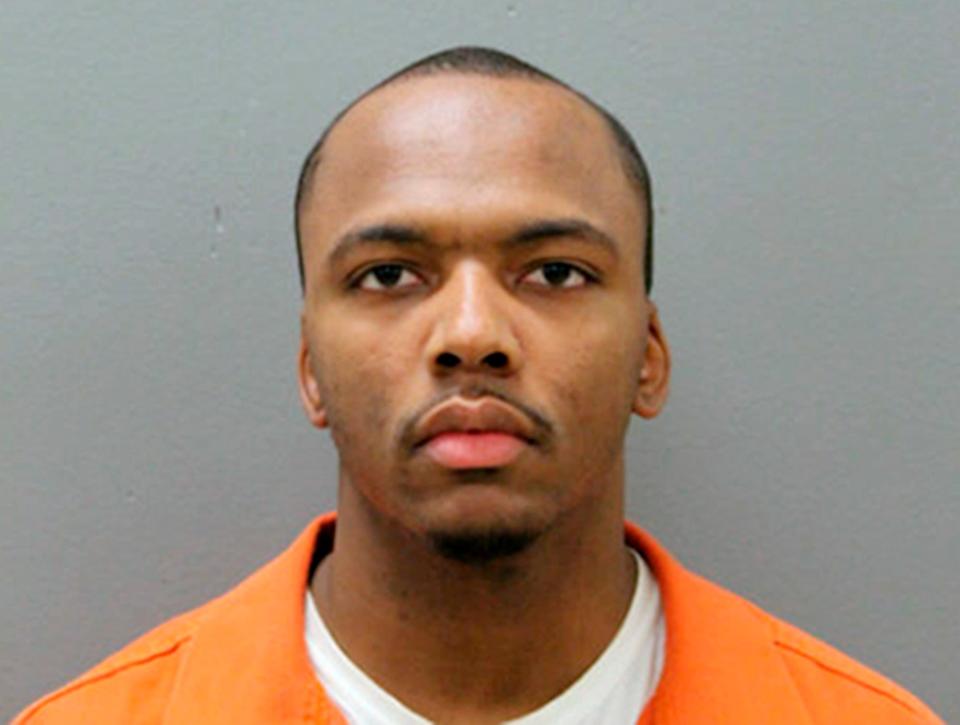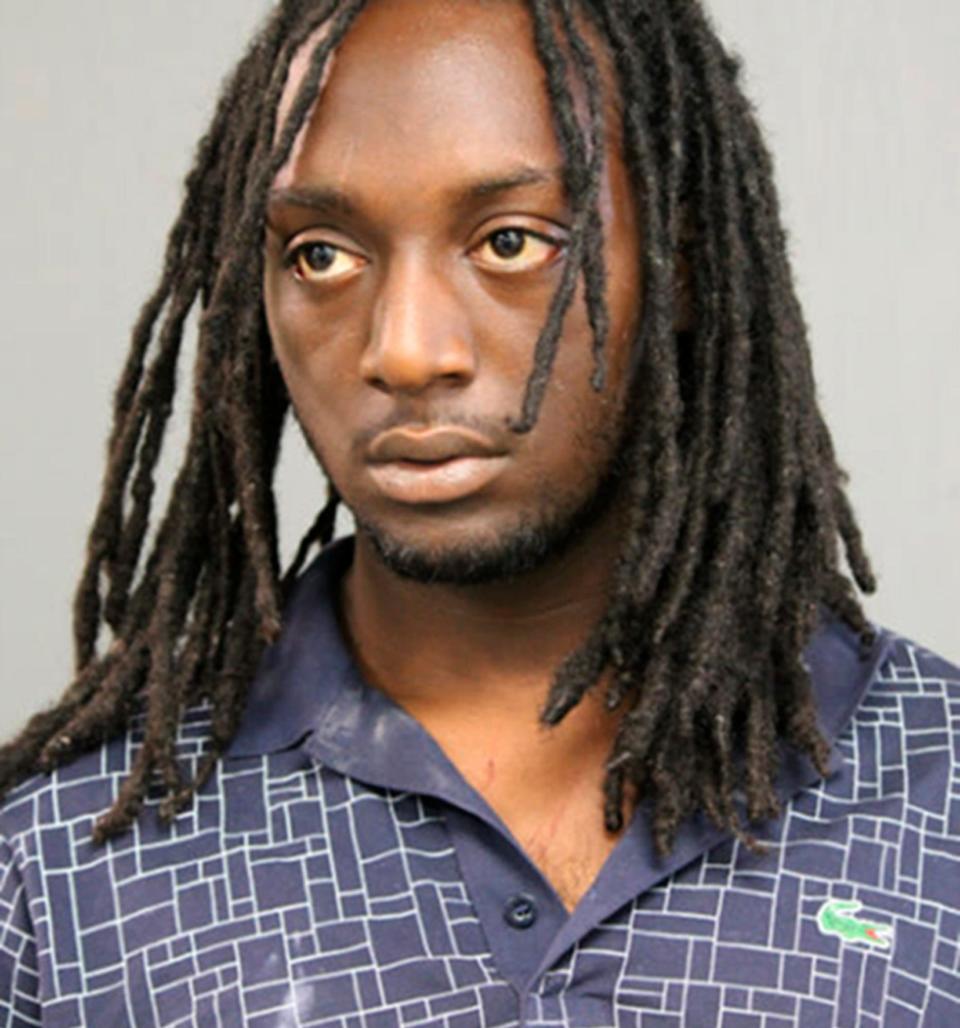Trial in 'heinous' gang-related murder of 9-year-old Tyshawn Lee begins in Chicago
CHICAGO – Trial began Tuesday in the murder case of a 9-year-old boy who was shot and killed nearly four years ago in one of Chicago's most horrific crimes.
Two purported gang members are charged with carrying out the November 2015 attack on Tyshawn Lee, a fourth-grader who prosecutors say was killed in an alley near a kid's playground to send a message to his father, an alleged member of a rival gang.
The killing shocked the nation at the time and underscored the viciousness of warring factions in Chicago.
Corey Morgan and Dwright Boone-Doty are being tried before separate juries, which were finalized before opening statements Tuesday morning. A third man, Kevin Edwards, drove Boone-Doty and Morgan to Dawes Park on the city's South Side and waited with Morgan in the SUV.
"Tyshawn brought a basketball to Dawes Park. Morgan, Doty and Edwards brought guns," Assistant State's Attorney Margaret Hillman said in opening statements.
Cook County Circuit Judge Thaddeus Wilson expressed frustration with the jury selection process, saying jurors were “trying to get off the jury.” Several jurors and potential alternate jurors had expressed concerns about being away from work and family during the trial, which is expected to last four weeks, through Oct. 11.
Tyshawn Lee's murder horrified Chicago: Now, gang members will stand trial
Moms were working to end shootings: Then they were fatally shot

Tyshawn’s mother, grandmother, great-grandmother, great-aunt and other family members were present in court. Tyshawn’s grandmother, Teresa Wilson, 43, wore a tie-dye t-shirt featuring his fourth-grade school photo. Tears ran down her face as the prosecution proceeded with opening arguments.
After school on Nov. 2, 2015, Tyshawn was sitting on a swing at the park down the street from his grandmother's house when a man approached him, dribbled his basketball, offered to buy him a snack and then led him to an alley, where he shot the child several times at close range, prosecutors said.
The execution-style shooting was an act of revenge, according to Hillman. Boone-Doty and Morgan, members of the same gang, believed that a rival faction had killed Morgan's 25-year-old brother and wounded his mother a month earlier.
“Shooting Morgan’s mom was beyond the pale. There weren’t many rules in this feud. But family was off limits. Family was untouchable," Hillman said.
Angered by the attack on his family, Morgan said that he "was going to kill grandmas, mamas, kids and all," Hillman said.
Boone-Doty initially retaliated by reportedly firing into a car occupied by a rival gang member, missing the rival but killing the 19-year-old woman who was sitting beside him, prosecutors said. Boone-Doty has pleaded not guilty in that attack.

Hillman said the defendants then turned their attention to getting back at Tyshawn's father, Pierre Stokes, who was also an alleged member of the rival gang.
Boone-Doty struck up a conversation with Tyshawn and led him to the alley, Hillman said.
Edwards, the driver, pleaded guilty to first-degree murder in exchange for a 25-year prison sentence.

Hillman noted that Morgan had been identified by four different witnesses at the time of the murder. Location services in both Morgan’s phone and car could be tracked to the scene of the crime, she said. Shell casings at the scene of the crime and the associated gun would eventually be linked back to Morgan and his brother, Anthony Morgan, who purchased the gun from a man in New Mexico.
“Corey Morgan and his co-offenders had the means, motive, and opportunity to commit the horrific crime—to murder an innocent 9-year-old—in the name of a gang feud," Hillman said.
Morgan’s lawyer Tom Breen present the defense. Breen aimed to throw skepticism on the prosecution's data points, telling jurors to “look for the lies.”
“Facts come from the witness stand,” Breen said.
El Paso, Dayton, Chicago: Media doesn't treat all gun violence the same

After juries shuffled in and out of the fourth-floor courtroom, Hillman launched into her second opening statement, for the case against Boone-Doty. She recounted a similar story, this time raising the fact that DNA found on Tyshawn's basketball has been linked to Boone-Doty.
Cook County Assistant Public Defender Brett Gallagher gave opening remarks in Boone-Doty's defense. She argued that the high-profile nature of the case put pressure on Chicago police to make an arrest, wrongfully naming Boone-Doty.
“It shocked the collective consciousness—not just here in Chicago, but across the country," Gallagher said. “You will not hear from any witnesses that say they saw Doty commit this crime."
Gallagher encouraged the jury to be skeptical of “self-serving sources," such as the jailhouse informant that recorded Boone-Doty bragging about committing the murder and writing a rap about it. Gallagher argued that, in jail, Boone-Doty was alone, surrounded by enemies and a gang culture that “values bravado and brutality above all else.”
“He pretended to be bigger and badder and more ruthless than he actually was in order to survive. Just because someone says something doesn’t mean it’s true," Gallagher said.
Instead, Gallagher appeared to be shifting the blame onto Corey Morgan and his family, reminding jurors that it was Morgan's brother who purchased the firearms and his family that was the target of the catalyzing attack.
Witness testimony began Tuesday afternoon following opening statements.
"I'm not worried about them being found innocent," Teresa Wilson told USA TODAY. "I just want people to get the justice they deserve."
Shootings on the decline
In 2015, the year Tyshawn was killed, violence was on the rise in Chicago. The city had its highest number of homicides since 2012, and shooting victims jumped 15% from the year before.
The following year saw an even greater surge of violence: Homicides jumped by 64%, and the number of shootings increasing by 47%, according to the Tribune. A disproportionate amount of the violence occurred in a handful of neighborhoods on the city's South and West sides.
But even at its peak, Chicago's homicide rate (per capita) remained lower than that of cities like Detroit, New Orleans or St. Louis, a 2016 study by the University of Chicago's Crime Lab found. The city, however, had the highest gun homicide rate of the five largest U.S. cities in 2016.
Crime down in Windy City? Chicago had least violent January in 9 years
Gun violence: Why Chicago PD can't get more residents to identify suspects
For the past two years, shootings have declined year-over-year, and 2019 is on track to continue the trend.
The CPD announced earlier this month that August experienced its lowest number of murders and shootings since 2011. Shooting incidents fell 19% and murders fell 23% in August compared to last year, according to the CPD report.
Follow Grace Hauck on Twitter @grace_hauck.
This article originally appeared on USA TODAY: Tyshawn Lee murder: Chicago gang members trial begins

